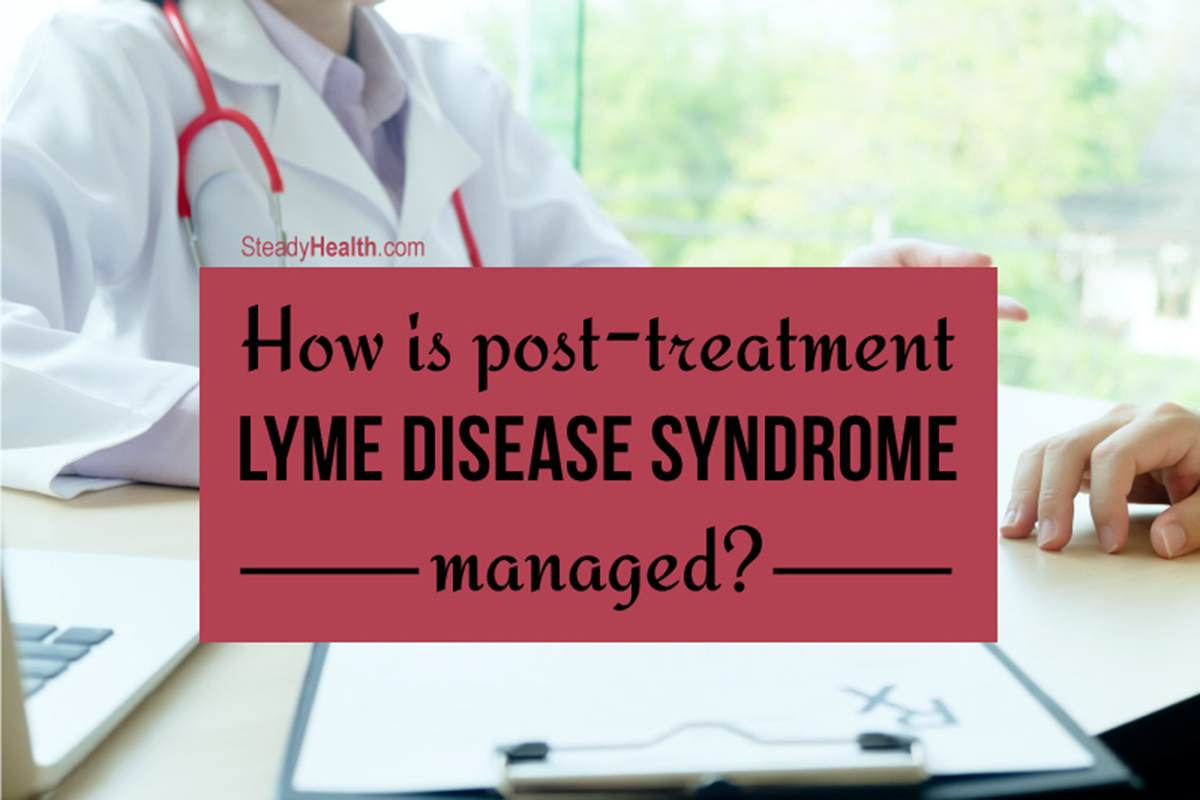Most people who receive a Lyme Disease diagnosis make a fast and full recovery from the tick-borne infection once they're treated with the appropriate antibiotics, especially if they had Stage 1 Lyme Disease when treatment commenced [1]. A significant minority of Lyme Disease patients are, unfortunately, still suffering from Lyme Disease symptoms six months after treatment, and also develop new symptoms. If you're one of them, you may have something called post-disease Lyme Disease syndrome, also sometimes known as chronic Lyme Disease.

What Are The Symptoms Of Post-Treatment Lyme Disease Syndrome?
Signs of chronic Lyme Disease can vary from person to person, and may include [2, 3]:
- Musculoskeletal pain (myalgias, joint paint, neck and back aches)
- Persistent fatigue
- Severe headaches
- Cognitive difficulties such as a lack of concentration, short-term memory loss, slowed speech, and depression
You might be diagnosed with post-treatment Lyme Disease syndrome if you had a clinical Lyme Disease diagnosis and received antibiotics to treat it, but suffer from continuous or recurring symptoms for at least six months after you've completed your treatment. Your symptoms must be invasive enough to have an impact on your daily functioning to receive this diagnosis. [4]
What Causes Post-Treatment Lyme Disease Syndrome?
While the cause of post-treatment Lyme Disease syndrome isn't yet clear, three main hypotheses have been proposed [5]:
- Your body may develop an inflammatory response after you developed Lyme Disease, even though the infection itself was fully cured. Lyme Disease has, in other words, done permanent damage to your body that is not addressed when the infection is treated.
- The bacteria causing Lyme Disease, Borrelia burgdoferi, are still present in your body but hiding out in places where they're not readily found, such as the joints — in which post-treatment Lyme Disease syndrome patients almost always have symptoms.
- The third theory amounts to "correlations doesn't equal causation": Patients attribute their symptoms to their previous Lyme Disease, but this is not their true cause.
What is known is that you are more likely to suffer from post-treatment Lyme Disease syndrome if you had Stage 2 (early disseminated) or Stage 3 (late disseminated) Lyme Disease at the time of diagnosis and treatment, if your symptoms were severe, and if you had neurological symptoms at the time you were first treated for Lyme Disease. [2] You may still develop post-treatment Lyme Disease syndrome if you do not have any of these risk factors, however.
Post-Treatment Lyme Disease Syndrome: What Are Your Treatment Options?
Let's first talk about what doesn't work. Clinical trials have shown that prolonged IV antibiotics do not lead to improved symptoms as compared with placebo treatment [6], and may place even place your health and life at serious risk [7]. Antibiotics for chronic Lyme Disease don't work, in short, and the CDC further warns against any alternative therapies for chronic Lyme Disease [8], which would be any treatments that are not evidence-based.
Chronic Lyme Disease And Post-Treatment Lyme Disease Syndrome: Not Necessarily The Same Thing
Post-treatment Lyme Disease Syndrome is a very real (and very nasty!) condition. Research has found, however, that symptoms similar to those of either late-stage Lyme Disease or post-treatment Lyme Disease syndrome are not uncommonly attributed to Lyme Disease in the complete absence of lab tests that indicate the presence of Borrelia burgdoferi. [3]
That "are attributed" obviously begs the question — by whom? Over the course of writing about Lyme Disease, I've learned that this isn't, as I initially suspected, just a case of "Dr Google" self-(mis)diagnosis. Reading message boards where people with so-called chronic Lyme Disease congregate, I've become aware that these diagnoses are often made by practitioners of alternative medicine, including naturopaths, and occasionally by actual doctors of medicine as well.
If this applies to you, we're not doubting your symptoms are real — and we know that your "mystery diagnosis" is still waiting to be made. Rather than delving into the waters of alternative and unproven medicine, please consult a medical doctor. To the point of boredom, if need be. Answers are out there for you, though they probably don't come in the shape of a tiny arachnid.
- Photo courtesy of SteadyHealth.com

